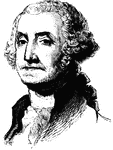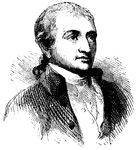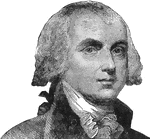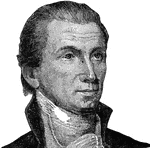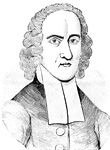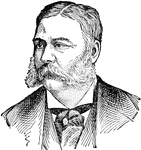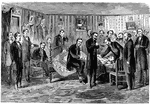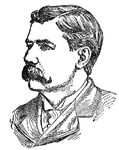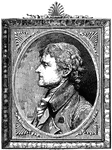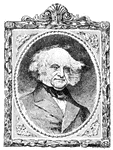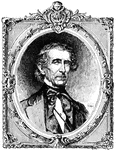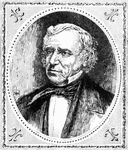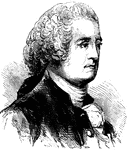
Governor John Rutledge
(1739-1800) A lawyer and a judge, Rutledge was a delegate to the Stamp Act Congress and the Continental…
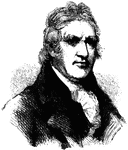
George Clinton
(1739-1812) General during the American Revolution and governor of New York. He was also Vice president…
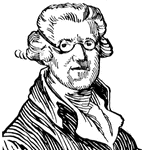
Reynolds
(1723-1792) Portrait painter whose works include Sarah Siddons as the Tragic Muse and Dr Samuel Johnson.…
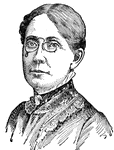
Frances Elizabeth Willard
(1839-1898) American temperance reformer. President of the National Woman's Temperance Union and of…
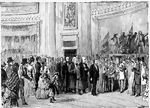
Grant's Second Inauguration as President
Inauguration ceremony for General Grant for his second term as President.
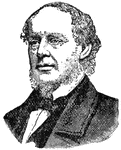
Salmon P. Chase
Chase was Secretary of the Treasury under President Lincoln and became Chief Justice of the United States.
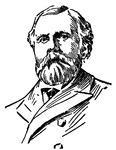
Lyman J. Gage
Became president of the First National Bank and was secretary of the treasury under McKinley.
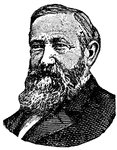
William Torrey Harris
Harris was an educator. He was commissioner of education during President Harrison, Cleveland, McKinley,…

Landing of Captain Bailey and Lieutenant Perkins in New Orleans
Captain Bailey, bearing a flag of truce, put off in a boat, accompanied by Lieutenant George H. Perkins,…

Arrival of General McClellan
April 5, 1862. The General is arriving to take personal command of the Federal Army in its advance on…
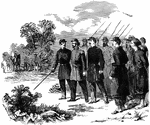
Major Taylor
"Escorting Major Taylor, of New Orleans, the bearer of a flag of truce, blindfolded, to the Confederate…
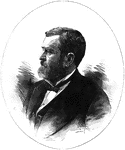
Ulysses Grant
General Grant, eighteenth President of the United States, born at Point Pleasant, Clermont County, Ohio,…
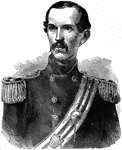
Michael Corcoran
"General Michael Corcoran, born in Carrowkeel, County Sligo, Ireland, September 21st, 1827, died near…
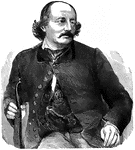
General Benjamin F. Butler
"General Butler was born in Deerfield, N. H., November 6th, 1818. At the time of President Lincoln's…

Review of Federal Army
"President Lincoln, attended by General McClellan and staff, reviewing the Federal army, on Tuesday,…
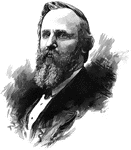
General Rutherford B. Hayes
"General Hayes was the nineteenth President of the United States, born in Delaware, O., October 4th,…
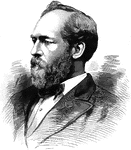
General James A. Garfield
"General James A. Garfield was the twentieth President of the United States, born in Orange, Cuyahoga…
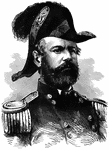
General Fitzjohn Porter
"General Porter, born at Portsmouth, N. H., June 13th, 1822, was graduated from the United States Military…
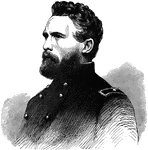
General Hiram G. Berry
"General Berry, born in Thomaston (now Rockland), Me., August 27th, 1824, died at Chancellorsville,…
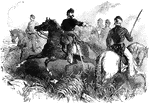
General Burnside
"Major General Burnside assuming command of the Army of the Potomac- issuing orders to his staff. 'Headquarters,…

Encampment of Colonel Max Weber's Rifle Regiment
"Encampment of Colonel Max Weber's German Turner Rifle Regiment, Twentieth New York Volunteers, at Hampton…
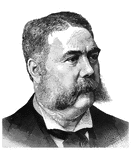
General Chester A. Arthur
"General Arthur, twenty-first President of the United States, born in Fairfield, Franklin County, Vt.,…

Garibaldi Guards
"Camp of the Garibaldi Guards, Colonel D'utassy, near Roche's Mills, Va., Potomac River in the distance.…
!["The Plantation Police, or Patrol, was an institution peculiar to the Slave States. It was a semi-military organization, raised and supported by the planters, but recognized by the old State authorities. Their principal duty was to visit the various plantations and patrol the roads at night, arresting all [African Americans] and others not having proper passes. The war, the President's proclomation, and the actual possession of most of the State of Louisiana by the Federal authorities, rendered these patrols doubly rigorous. Some of the [African Americans] submitted reluctantly. The [African American] in the foreground is a speciman of this class. He seems to yield to the superior force of a tottering power, satisfied that his day is at hand; others show the obsequious, submissive stamp- the [African American] satisfied with his lot if he is clothed and fed."— Frank Leslie, 1896](https://etc.usf.edu/clipart/11600/11643/plant-police_11643_mth.gif)
Plantation Police
"The Plantation Police, or Patrol, was an institution peculiar to the Slave States. It was a semi-military…

General Daniel Tyler
"General Tyler, born in Brooklyn, Windham County, Conn., January 7th, 1797, died in New York city, November…

Harrison Mansion
"The old Harrison Mansion, Harrison's Landing, Va., the birthplace of President William Henry Harrison,…
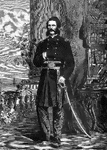
General Lafayette C. Baker
"General Baker, Chief of the United States Secret Service, born in Stafford, Genesee County, N. Y.,…
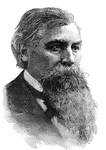
General Jeremiah M. Rusk
"General Rusk, born in Morgan County, Ohio, June 17th, 1830; died in 1894. He divided his time between…
!["Presentation of colors to the Twentieth United States [African American] Infantry, Colonel Bartram, at the Union League Clubhouse, New York, March 5th, 1864. The Twentieth Regiment, United States [African American] Troops, left Riker's Island at nine o'clock on the 5th of March, 1864, on board the steamer <em>John Romer</em>, and were conveyed to the foot of Twenty-first Street, East River, New York, where they were disembarked and formed in regimental line, and marched to Union Square, arriving in front of the Union League Clubhouse at one o'clock. A vast crowd of citizens, of every shade of color and every phase of social and political life, filled the square and streets, and every door, window, veranda, tree and housetop that commanded a view of the scene was peopled with spectators. Over the entrance of the clubhouse was a large platform, ornamented with flags and filled with ladies. In the street was another platform, tastefully decorated and occupied by prominent citizens. From the stand the colors were presented by President King of Columbia College, who addressed them with warmth and eloquence. After the presentation ceremony was over the men stacked arms and partook of a collation provided for them."— Frank Leslie, 1896](https://etc.usf.edu/clipart/11700/11749/presentcolor_11749_mth.gif)
Presentation of Colors
"Presentation of colors to the Twentieth United States [African American] Infantry, Colonel Bartram,…

Fort Stevens
"The operations near Washington, scene of the fight in front of Fort Stevens, July 12th-13th, 1864.…
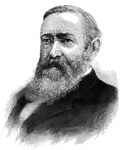
General Benjamin Harrison
"General Harrison, twenty-third President of the United States, was born at North Bend, Ohio, August…
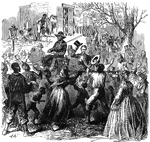
President Lincoln
"President Lincoln riding through Richmond, Va., April 4th, 1865, and the enthusiastic cheers of the…
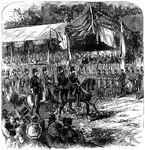
Grand Review
"The Grand Review at Washington, D. C., May 24th, 1865- President Johnson, Lieutenant General Grant…
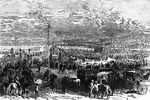
Antietam National Cemetary
"The dedication of the Antietam National Cemetary, at Sharpsburg, Md., on Tuesday, September 17th, 1867.…
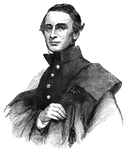
Major Robert Anderson
"Major Robert Anderson, the commander of Fort Sumter at the time of its fall, was born in Kentucky in…

Rhode Island Regiments
"Rhode Island Regiments embarking at Providence for New York and Washington. Within five days after…
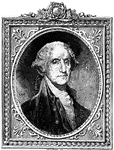
George Washington
"George Washington, after a painting by Gilbert Stuart. (The Gibbs Portrait.)"—E. Benjamin Andrews,…
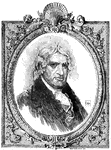
George Clinton
(1739-1812) George Clinton, was governor of New York (1777-1795} and fourth vice president of the United…
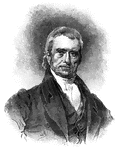
John Marshall
"John Marshall was dispatched by President Adams as a last overture for peace with France."—E.…
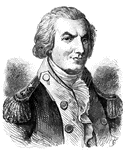
General Arthur St. Clair
(1737-1818) President of the Continental Congress (1787) and governor of the Northwest Territory (1788-1802).
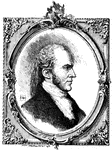
Aaron Burr
"Aaron Burr was the grandson of President Edwards and Attorney-general of New York in 1789."—E. Benjamin…
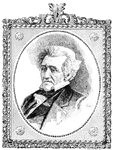
Andrew Jackson
"Andrew Jackson was born March 15th, 1767, was a senator from Tennesse and president."—E. Benjamin…
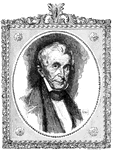
William Henry Harrison
"William Henry Harrison, former president of the United States."—E. Benjamin Andrews, 1895
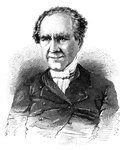
General Sam Houston
"General Sam Houston won a complete victory over Santa Anna, the Mexican President, in the Mexican War."—E.…
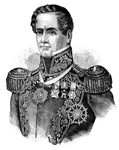
General Santa Anna
"General Santa Anna was the Mexican President during the Mexican War."—E. Benjamin Andrews 1895
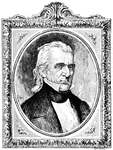
James K. Polk
"James K. Polk, president during the beginning of the Mexican War."—E. Benjamin Andrews 1895
